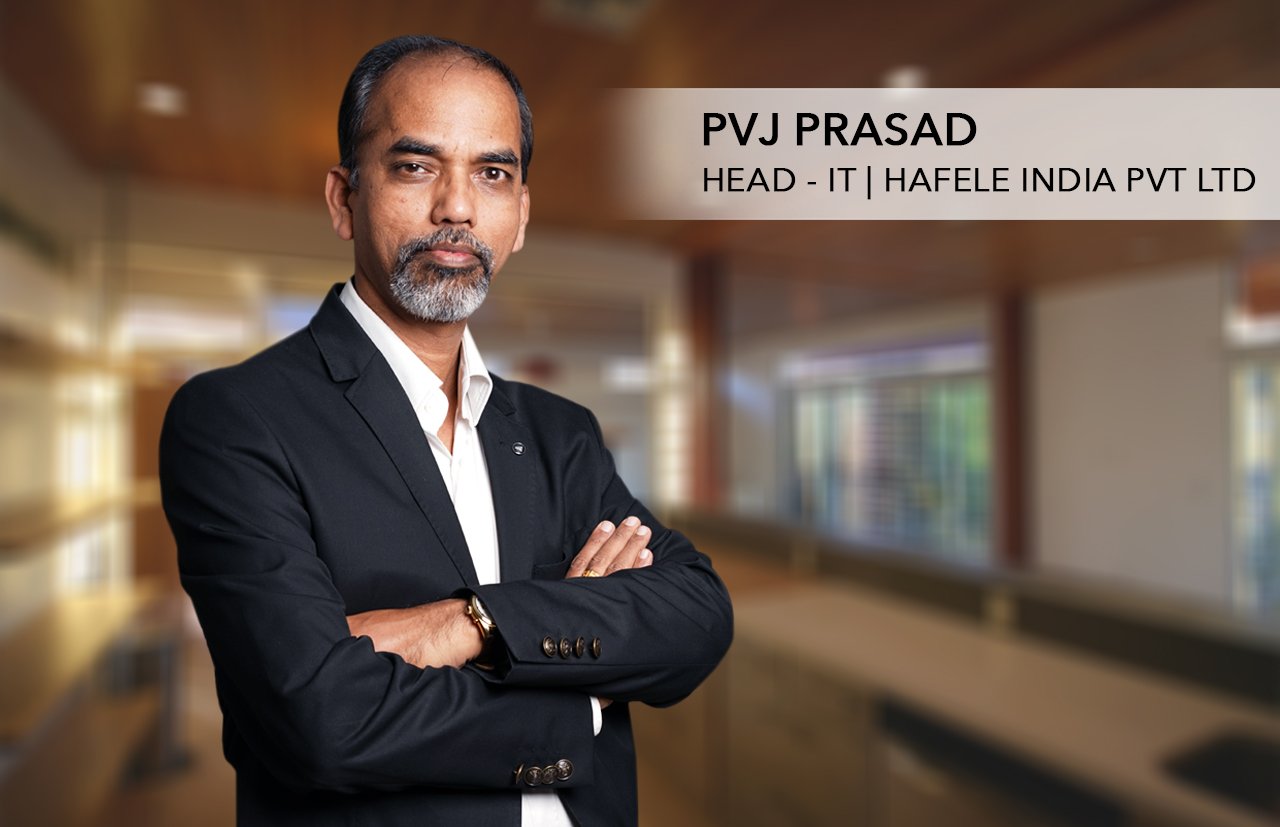PVJ Prasad, Head - IT, Hafele India Pvt Ltd, discusses how his company is innovating to meet emerging business challenges.
Hafale, the German multinational manufacturing architectural hardware, fittings and consumer electronics goods has a strong India presence. Currently the company is going through a digital transformation journey. Hafele’s India Head of IT PVJ Prasad spoke to CIO dialogues on how his company is innovating to meet emerging business challenges.
Hafele has a diverse portfolio and India is a major design and distribution hub for your company. What are the typical business challenges you face?
Today’s customer is quite demanding and expects delivery of goods at lightning speed from the time the order is placed. Our typical challenge is to meet this customer demand, for which a lot of work needs to happen in the background. The availability of the right stock at the right place and at the right time is key to fulfilling this ever-growing demand. The fact that all our goods are 100 per cent imported, with no manufacturing facilities in India, maintaining adequate inventories at all distribution centres is another key challenge. With a proper sales forecasting system, we are able to pre-empt requirements and place orders in time to mitigate stock out situations. We have established regional distribution centres in the country’s four regions with the philosophy of ‘being close to the customer’ and serve most of the orders from the nearest distribution centre. However, seasonal trends and festive rush do create an imbalance in our inventories at the regional centres sometimes, but these are fully supported and serviced from the main distribution centre in Mumbai.
In addition to your employees you have a nationwide reseller network. How are you deploying IT to bring greater synergies between your employees and resellers to deliver superior customer experience?
This is an area that has been constantly evolving in our company. Though our exclusive franchisees have been using company provided solutions to manage orders, billing, inventory and claims, we are now extending this to capture secondary sales, ie, the sales that they do with the end consumer. There is a continuous effort to identify areas where we can bring synergies in operation and customer experience by leveraging the right technologies. Mobile applications to empower partners to manage their businesses on the go are another initiative. While the new franchisees with young managers readily adopt technology, old ones are late adopters.
We understand that Hafele is amidst a digital transformation journey. What has been your experience so far and what are the learnings?
Digitalisation is no longer a choice, but a necessity for any business. Hafele too is no exception to this reality. The year 2018 saw many digital initiatives to develop mobile applications for after-sales, customer portal, state-of-the-art HRMS system, expense management system and many more. The formation of a core team, consisting of business and IT personnel, is testimony to the company’s vision of according top priority to digitalisation.
RPA can radically change the way a manufacturing company operates. However, this will largely depend on the choice of platform. What’s been your experience in implementing RPA?
While Hafele in India has no manufacturing facility, RPA is very much a part of the digital journey. The objective of RPA is to bring in speed and efficiency in repetitive processes and allow employees to perform more innovative tasks.
Blockchain is yet another technology that has the potential to transform manufacturing units. What’s your take on it?
This is one technology that is still nascent in India, and limited to large enterprises that can create an ecosystem to leverage this technology. The use cases in blockchain are still evolving and skill sets are scarce. Investments in this technology are on a higher side, with no ROI calculation possible. So organisations need a lot of maturity to adopt this into their businesses.


